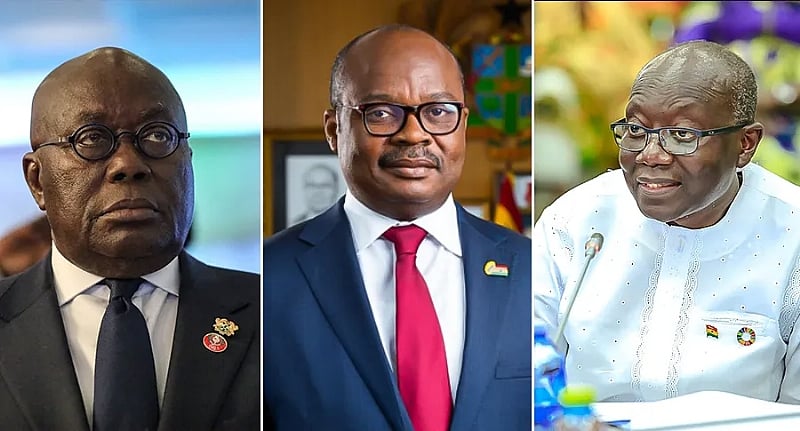The 2017 Ghanaian banking sector cleanup, while intended to fortify the financial system, has been plagued by inconsistencies and a lack of transparency surrounding the cost of the exercise. Different figures have been presented by authoritative sources, creating confusion and raising concerns about potential financial mismanagement. This discrepancy undermines public trust and raises questions about the accountability of the institutions involved.
The cleanup was initiated in response to a concerning asset quality review that revealed widespread insolvency, liquidity issues, poor corporate governance, and a surge in non-performing loans. The situation, described as a “considerable state of distress,” prompted the Bank of Ghana, under the new leadership of Dr. Ernest Addison, and the then-government to take drastic measures. These measures began with the collapse of UT and Capital Bank, reportedly at the behest of the International Monetary Fund, and culminated in the introduction of a new minimum capital requirement for all universal banks.
The cleanup ultimately resulted in the collapse of nine banks, the creation of Consolidated Bank Ghana (CBG) to absorb their assets and liabilities, several bank mergers, and a reduction in the total number of universal banks from over 30 to 23. New corporate governance directives were also issued to bolster the long-term stability of the reformed sector. However, despite these efforts to strengthen the banking system, the conflicting narratives around the financial cost of the cleanup have cast a shadow over the process.
Three prominent sources have provided significantly different figures for the total cost of the cleanup. Former President Akufo-Addo, under whose tenure the exercise was conducted, stated in Parliament that the cost was GH¢21 billion, representing 7.1% of GDP. This figure contrasts with the Ministry of Finance’s own published document, which cites a cost of GH¢18.99 billion, or 5.49% of GDP. Adding further to the confusion, the International Monetary Fund’s 2019 country report on Ghana reported a cost of GH¢15.75 billion, equivalent to 5% of GDP. The IMF report provided a breakdown of the costs incurred in 2018 and 2019, covering actions related to universal banks, microfinance institutions, savings & loans companies, and finance houses.
These discrepancies raise serious concerns about financial accountability, prompting questions about potential hidden costs, unaccounted expenditures, or inflated figures. Financial analysts, including Dr. Richmond Atuahene, argue that the conflicting information erodes public trust in governmental and financial institutions. Beyond impacting public perception, these discrepancies signal potential inefficiencies and weaknesses in regulatory oversight and financial reporting, which can deter both local and foreign investment. The uncertainty surrounding the true cost of the cleanup leaves room for speculation about the responsible use of taxpayer money.
The lack of a clear and consistent account of the cleanup’s cost underscores a need for greater transparency and accountability. While the new government has pledged to review the circumstances that led to the banking crisis, a crucial step towards restoring confidence would be a comprehensive forensic audit of the cleanup’s expenditures. A detailed, publicly available report outlining how the funds were used would not only address the current ambiguity but also strengthen trust in Ghana’s financial sector and its regulatory bodies. Such transparency is essential for a healthy financial system and for attracting future investment.
The inconsistencies surrounding the cleanup’s cost raise broader questions about financial governance and reporting practices in Ghana. The discrepancies highlight the need for robust systems that ensure accurate and consistent reporting of public expenditures. A thorough investigation into the differing figures is not only necessary to address the immediate concerns about the banking sector cleanup but also to establish stronger safeguards against similar issues arising in the future. This level of transparency is crucial for fostering a stable and trustworthy financial environment that can support sustainable economic growth. A forensic audit should be considered a priority to provide clarity and rebuild public trust, ultimately strengthening the foundations of Ghana’s financial system.


